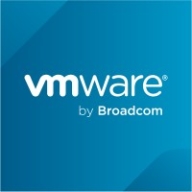

Acronis Disaster Recovery and VMware Live Recovery compete in the business recovery solutions market. VMware Live Recovery is seen as superior in features, making it a preferred choice for those prioritizing quick recovery.
Features: Acronis Disaster Recovery offers comprehensive data protection, seamless system integration, and scalability. VMware Live Recovery focuses on continuous availability, fast restoration times, and robust security protocols, serving those who aim to minimize downtime.
Room for Improvement: Acronis Disaster Recovery could enhance its feature set to match competitors and develop faster restoration times while improving security protocols. VMware Live Recovery could work on reducing costs, simplifying the user interface, and decreasing initial setup complexity.
Ease of Deployment and Customer Service: Acronis Disaster Recovery is straightforward to deploy and has responsive customer service, enhancing the onboarding experience. VMware Live Recovery is easy to implement while offering advanced configuration options and proactive customer support for complex environments.
Pricing and ROI: Acronis Disaster Recovery is attractive for budget-conscious buyers due to its lower initial costs and quick ROI. While VMware Live Recovery requires a higher investment, it offers significant ROI through its advanced features and reliability, appealing to businesses focused on reducing operational risks.
My customers are finding value in Acronis Disaster Recovery, as they are happy with the tool and continue to use the services after facing many situations where they found it useful and got good returns on their investment.
Acronis regularly introduces new features to meet customer needs, which can lead to efficiencies.
A high-level technical team should be accessible swiftly to minimize customer downtime.
They were experts regarding Acronis support for any kind of issues.
The technical support is reliable and efficient.
Our team has dedicated personnel for support who engage with the supporting teams.
They are knowledgeable.
The technical support from VMware is very good and operates based on a service level.
The scalability of Acronis Disaster Recovery is good, and I would rate it an eight out of ten.
It is easy to scale; you can directly add licenses for scalability.
We have not experienced any downtime, bugs, or glitches.
For our test labs, dev labs, and production, it is very stable.
If a server is completely offline and destroyed, the system should offer an intelligent response, providing options to start recovery without requiring manual intervention from engineers.
For the backup to compete in the enterprise market, there must be improvements.
For shared drives, when configuring SharePoint services for backup, licensing becomes difficult to understand, so that would be a point of interest for improvement.
It's important for the cost to be justified based on the features used in production.
I would like to see improved integration services with other solutions, such as SIEM management or security monitoring.
The main issue is to improve the approach of resolving solutions.
The price for Acronis Disaster Recovery is fair from the perspective of features, but for Indian customers and in light of the competition, it would be better if the price were a little lower to pitch services more effectively.
Acronis Disaster Recovery is fairly priced.
The pricing for Acronis products has increased by 10% to 15% over the past few years, making it challenging for existing customers to accommodate the rising costs annually.
Previously, when acquiring a license for Ethiopian drug supply chains, the price was significantly high, especially after Broadcom joined VMware.
We mostly prefer to recommend this to customers due to ease of use, abundant features, and support.
For cloud-based solutions, the cost seems quite pricey, so we stick to on-premises deployment.
The ability to automate the backup solution and recover entire mailboxes or even granular-level emails is very good for restoration and backup.
For data recovery, when we lose a server, we are able to restore it in place with the click of a button.
Backup is crucial as it allows data recovery.
If I talk about vCenter and the auto failover of the VMs, such as live migration, that is a very cool feature that we require in our environment because we have different data centers, and if some of the servers fail, they automatically failover and move the VM from one side to another.
It is used for data replication between data centers and allows for quick response in times of failure, ensuring data availability.
The capability and the functionality of the features are very helpful for us.
| Product | Market Share (%) |
|---|---|
| VMware Live Recovery | 7.3% |
| Acronis Disaster Recovery | 1.0% |
| Other | 91.7% |

| Company Size | Count |
|---|---|
| Small Business | 13 |
| Midsize Enterprise | 1 |
| Large Enterprise | 3 |
| Company Size | Count |
|---|---|
| Small Business | 36 |
| Midsize Enterprise | 12 |
| Large Enterprise | 40 |
Acronis Disaster Recovery Service is a hybrid cloud, all-in-one, IT continuity solution that protects and restores your data and servers in the event of a natural or man-made disaster. Leveraging the power of the Acronis AnyData Engine, Acronis Disaster Recovery Service can reliably recover your servers or entire data centers without the need for you to invest in duplicate systems or additional staff.
Acronis Disaster Recovery Service can reliably recover your servers or entire data centers without the need for your organization to invest in duplicate systems or additional staff. Providing flexible recovery time objective (RTO) options, Acronis Disaster Recovery Service combines the high performance and shortest recovery time of a local appliance with the low cost, predictability, and accessibility of a virtual private cloud.
We monitor all Disaster Recovery (DR) Software reviews to prevent fraudulent reviews and keep review quality high. We do not post reviews by company employees or direct competitors. We validate each review for authenticity via cross-reference with LinkedIn, and personal follow-up with the reviewer when necessary.